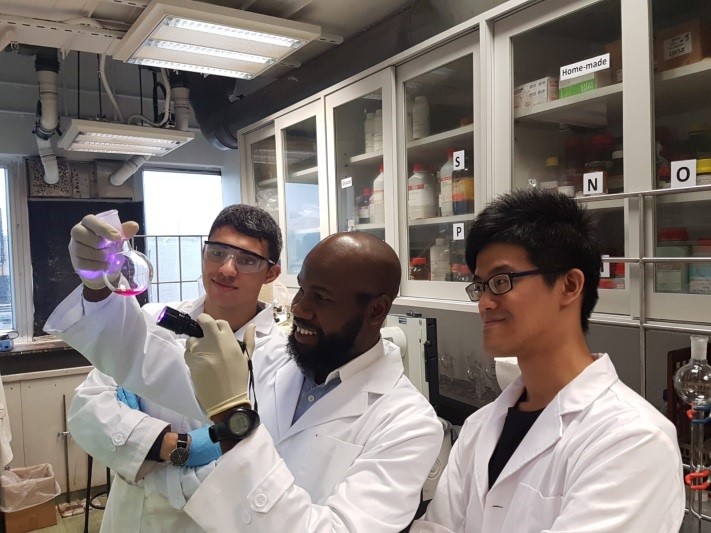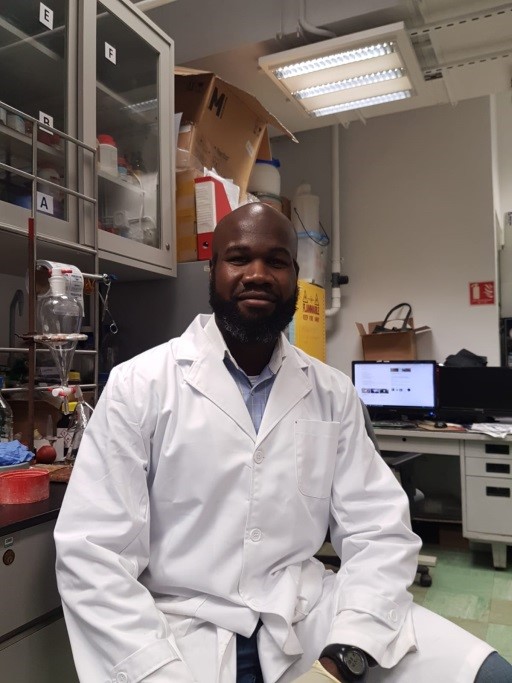Internationalising a Local Science Classroom
By Tiffany Ko
If one major mission of CoP – ITL is promoting internationalisation at home to classrooms of all disciplines and all levels of diversity, we may well consider disproving two ideas: (1) the teaching of science subjects which are generally perceived as the delivery of value-free universal truths and (2) the absence of international students as handy excuses for not internationalising teaching and learning. It seems rational to believe that intercultural understanding can be more easily developed in a multicultural classroom in the disciplines of arts and humanities, which constantly engages students in reflection and value judgement than in a local classroom in science. That said, we want to put forward an argument that developing global citizenship in a local classroom of Environmental Sciences is far from being an impossible mission. We are, in fact, very delighted to have Dr. Uchenna Ogbonnaya, a HKBU-affiliated member, who supports our argument with actions.
Role Play Makes a Difference
As one grew up in Nigeria receiving higher education in Hong Kong and the U.K., Dr. Ogbonnaya recognises the importance of developing a global vision in himself and others. It is to him a vision that enables people to (fore)see what issues are capturing global gazes; and where businesses and innovations are turning into so that they can adapt to changes with great physical mobility. To envision his students accordingly, a role play was brought to the classroom of “Introduction to Environmental Sciences” housing fifty Year 2 local Hong Kong science majors.
Students were grouped randomly and casted roles of representatives from a community, an environmental organisation, an international bank or a (biotechnology) company. They were, in the teacher’s words, “entrusted to read up the backgrounds, concerns, and mitigatory approaches associated with their environmental aspects in the specific country and educate their classmates”. Assessment was done through peer evaluation on their presentation skills, clarity of message, professionalism and knowledge of the given scenarios. Apart from promoting active learning, Dr. Ogbonnaya accentuated that the activity enabled students to gain knowledge of global practices, which hopefully could be employed as case examples for comparisons and references at their senior years.
Local-Global Interaction
Besides equipping students with descriptive knowledge of environment in certain nations and bodies, the role play was further enriched by a purposeful design of the “characters”. Students were asked to present on behalf of some key global stakeholders which may have conflict of interests over one another. There was, for instance, one group responsible for engineering a type of bacteria that moderated climate; one developing a software that tracked greenhouse gas emission; and one criticising the use of technology as environmental activists. By putting the students in the unusual lens of a remote location or an institution and calling attention to the dynamics between the stakeholders, they developed a genuine awareness of how actions within a local community could affect the global environment.
Contextualising Science Teaching
From Dr. Ogbonnaya’s observation, the majority of students found the role-play activities engaging and joyful. The students further admitted that considerable effort was incorporated into the course for better student learning. Comparing to the instant positive reactions, the teacher finds greater pleasure in seeing how the rising awareness of local-global interaction inspired students to mitigate climate change by altering their consumption habits, from controlling electricity usage to reducing food wastage. While the thoughtfully designed simulation activity deserves our kudos, it is also believed that the course would not have made such impact on students without the teacher’s commitment to contextualising Science teaching. In other words, by supplementing the remarkable role play with diverse reading materials, articulations of how universal science theories were applied in different parts of the world with unique implications but far-reaching impact, Dr. Ogbonnaya made the teaching of Environmental Sciences fun and fluid.
Acknowledgments
The feature story draws on an interview with Dr. Uchenna Ogbonnaya who generously shared with us his experiences and insights, and we hope we have done justice to the wisdom of his practice in the internationalisation of teaching and learning.
Cite this item
Ko, T. (2018, October). Internationalising a Local Science Classroom. CoP – ITL Buzz, 4. Retrieved from https://www4.talic.hku.hk/cop-itl/whats-happening/enewsletters/issue-04/internationalising-a-local-science-classroom/.



